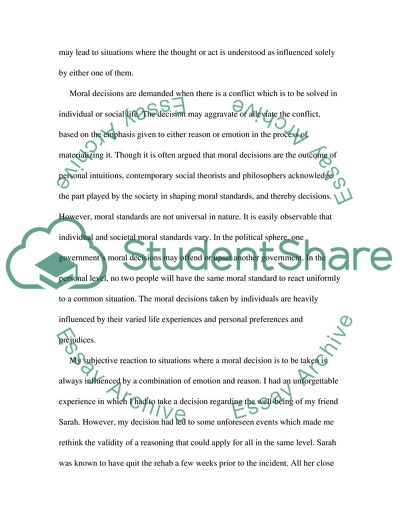Cite this document
(Are Reason and Emotions Equally Necessary in Justifying a Moral Decision Essay Example | Topics and Well Written Essays - 1250 words, n.d.)
Are Reason and Emotions Equally Necessary in Justifying a Moral Decision Essay Example | Topics and Well Written Essays - 1250 words. https://studentshare.org/psychology/1712029-theory-of-knowledge
Are Reason and Emotions Equally Necessary in Justifying a Moral Decision Essay Example | Topics and Well Written Essays - 1250 words. https://studentshare.org/psychology/1712029-theory-of-knowledge
(Are Reason and Emotions Equally Necessary in Justifying a Moral Decision Essay Example | Topics and Well Written Essays - 1250 Words)
Are Reason and Emotions Equally Necessary in Justifying a Moral Decision Essay Example | Topics and Well Written Essays - 1250 Words. https://studentshare.org/psychology/1712029-theory-of-knowledge.
Are Reason and Emotions Equally Necessary in Justifying a Moral Decision Essay Example | Topics and Well Written Essays - 1250 Words. https://studentshare.org/psychology/1712029-theory-of-knowledge.
“Are Reason and Emotions Equally Necessary in Justifying a Moral Decision Essay Example | Topics and Well Written Essays - 1250 Words”. https://studentshare.org/psychology/1712029-theory-of-knowledge.


